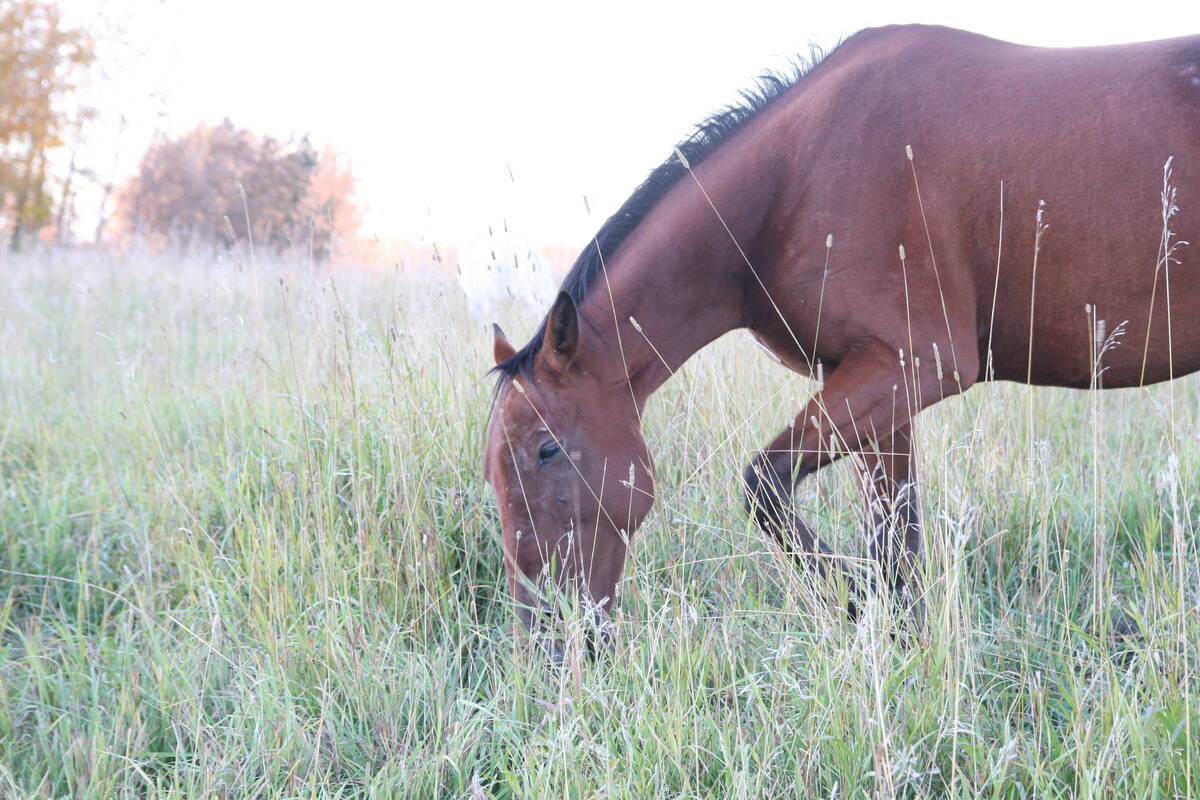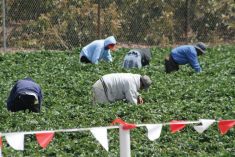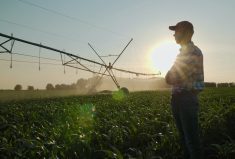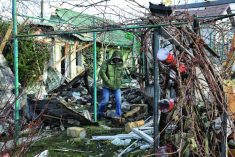The pandemic is taking a toll in many ways, and that includes a rise in domestic violence in both rural and urban centres in Alberta, say social service agencies.
“In the beginning of COVID-19, with the government telling everyone to stay home, and the fear of living with other families, we saw a drop in our clientele initially,” said Melissa Green, executive director of Hope Haven Society in Lac La Biche. “Now we’re full. We’ve been seeing an increase both in the cases of domestic violence and in the severity of the cases.
Read Also

Beware giving horses too much iron
Horses consuming too much iron through diet or well water risk health problems like laminitis. Mineral testing forage and water is good practice for owners.
“We are seeing more women fleeing abuse, and I would say, fleeing more severe abuse.”
Shelter workers have seen an increase in mental health and addictions problems for several years, said Green.
“But with COVID-19, it can take such a toll on an individual’s mental health, so we are working more with our clients to get them the help they need with that,” she said.
It’s important Albertans know the shelters have remained open during the pandemic, and that they are taking added measures to prevent transmission of the coronavirus, Green added.
“Coming into a congregate living situation with other families, people can think that might up their risk of getting COVID-19. We do have all of our safety precautions in place — extra sanitization, masks, all of that in place to keep everyone safe.”
In Fairview, the Crossroads Resource Centre and Women’s Shelter in Fairview, is receiving more calls on its crisis line, including from people who are feeling suicidal as well as those experiencing domestic abuse, said executive director Wendy Biegel.
“Crisis calls have increased about 30 to 40 per cent since COVID-19 started. March and April, not so much, but we’ve been seeing an increase since June,” she said.
Workers operating the crisis line can advocate for people and provide referrals, and are trained in suicide prevention. Biegel said there has been an increase in calls related to finding shelter. She’s also noticed an increase in the severity of violence during the pandemic.
Rural shelters provide many more services than just temporary housing, said Green.
“If you can’t make it into Hope Haven, or don’t want to, we provide so many services that you can connect with us,” she said. “You don’t have to come in and sleep at the shelter to become a client. You can start by contacting us and getting some outreach services, some crisis support, or someone to talk to.”
But rural shelters have unique challenges. While some have vehicles to transport clients, others, like Hope Haven, do not.
“We don’t have the funds for a shelter vehicle right now, so we are unable to pick people up,” said Green in a recent interview. “We will, whenever possible, send a cab. But here in Lac La Biche, we only have two physical cabs. We got one of the cabs to take a client to the bus today, and that cab had to go out of town because we don’t have any bus station. It makes it more difficult.
“We will help in any way possible with transportation. If it is a safety risk at that moment, we will offer to contact police. If there’s any other way that we can provide those services to the women, we’ll try to make it work.”
Biegel said transportation is also an issue for Crossroads.
“We have women who will call and they’re accepted into our shelter and they can’t get transportation here,” she said. “That’s a real barrier for our women.”
Women fleeing violence will often seek shelter in another community away from their abuser, added Biegel.
“It also depends on the capacity of shelters as well. If the shelter in Grande Prairie is full, they’re going to give a call to Peace River or Fairview. We work very collaboratively with other shelters.”
Crossroads has also been able to provide some transportation, following COVID-19 restrictions, between Peace River and Grande Prairie, but funding doesn’t always accommodate for that. Both Green and Biegel said a shortage of low-income housing is also a barrier to settling women in their communities after their time at the shelter. Many mental health and addiction services are not available in smaller communities, and people may need to travel or be transported to larger centres to access those services.
Still, people should reach out for help and also realize that an abuse isn’t just defined by physical violence, said Green.
“There are a lot of other forms of abuse,” she said. “There can be emotional abuse, isolating you from family and friends or gaslighting. They’re all forms of abuse that you might not recognize.
“Just because your partner, or your family member’s partner isn’t hitting them doesn’t mean things are OK.”
















